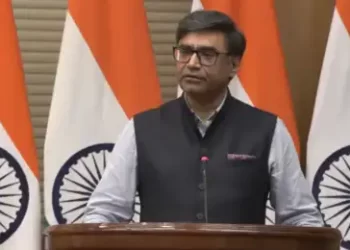In a swearing-in event at Rashtrapati Bhavan on Monday, President Droupadi Murmu administered the oath of office to Justice Sanjiv Khanna as Chief Justice of India (CJI).
Justice Khanna will serve as the 51st Chief Justice of India for approximately six months.
As a Supreme Court judge, he has contributed to key decisions on Article 370, adultery decriminalization, the electoral bonds scheme, the EVM-VVPAT tally, and other issues.
On October 24, the Centre approved Justice Khanna’s appointment to the country’s highest judicial office, following his recommendation as successor by then-CJI D.Y. Chandrachud last month.
“In exercise of the powers conferred by Clause (2) of Article 124 of the Constitution of India, the President is pleased to appoint Shri Justice Sanjiv Khanna, Judge of the Supreme Court, to be the Chief Justice of India with effect from 11 November 2024,” had said a notification issued by the Union Ministry of Law and Justice.
Justice Sanjiv Khanna held the post of Chairman, Supreme Court Legal Service Committee.
At present, he is the Executive Chairman of the National Legal Services Authority and a member of the Governing Counsel of the National Judicial Academy, Bhopal.
Before elevation to the Supreme Court, Justice Khanna served as a judge in the Delhi High Court till January 2019.
As a judge of the Delhi High Court, he served as Chairman/Judge-in-Charge of the Delhi Judicial Academy, the Delhi International Arbitration Centre, and the District Court Mediation Centre.
He was born in May 1960 and received his law degree from Delhi University’s Campus Law Center.
He became an advocate with the Delhi Bar Council in 1983, where he principally practiced taxation, arbitration, commercial law, environmental law, medical negligence law, and business law in the Delhi High Court.
He served as the Income Tax Department’s Senior Standing Counsel for many years.
In 2004, he was appointed Standing Counsel (Civil) for the Delhi government. He also appeared and argued in a number of criminal matters in the Delhi High Court as an Additional Public Prosecutor and as an amicus curie (friend of the court).







 Finance
Finance







